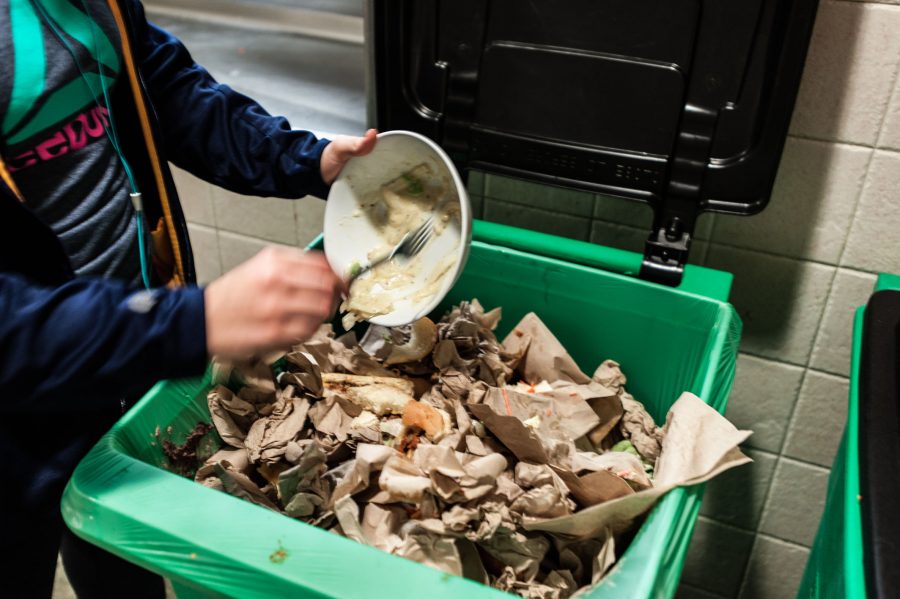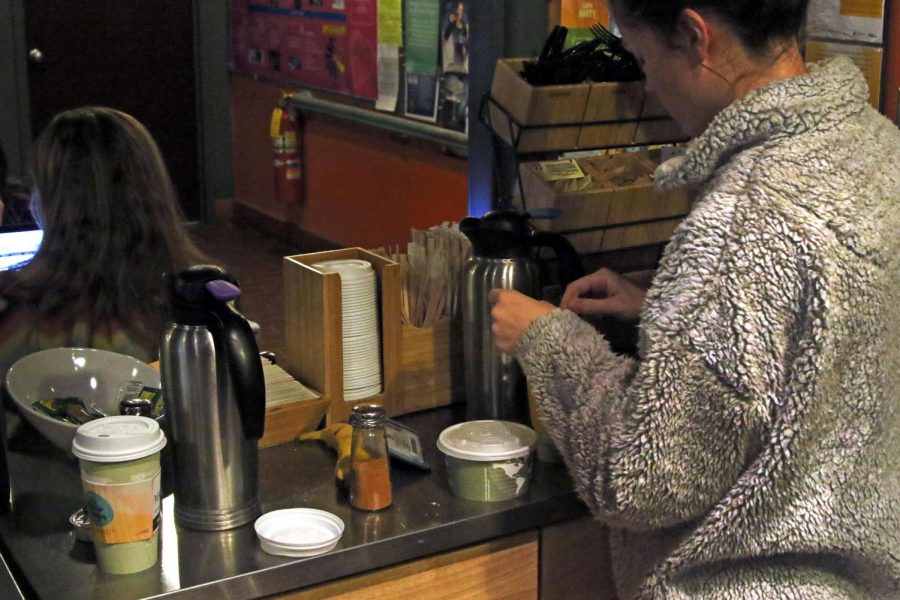Marquette added new compost bins to the Alumni Memorial Union, Cobeen Hall, McCormick Hall, Schroeder Hall and Straz Tower cafeterias.
Marquette composts through Compost Crusader, a company founded by Melissa Tashjihan in 2014. Lakefront Brewery, Outpost Natural Foods, Beans and Barley, Odd Duck, the Urban Ecology Center and Belair Cantina are some of the other Milwaukee businesses, schools and restaurants who also work with Compost Crusader.
On collecting day, the company truck, nicknamed the “Compost Cruiser” collects compost from all over Milwaukee, then hauls the waste to Caledonia, Wis., where it is left to decompose into nutrient rich soil, destined to be sold as fertilizer. According to its website, the company hopes to divert up to 40 percent of waste out of landfills by the year 2020.
One student has a positive view of the emphasis on compost.
“I think it will help our community be more eco-friendly, which will overall help everyone’s health,” Megan Olson, a freshman in the College of Business Administration, said.
The bins, lined with light green, biodegradable bags, are placed near the dirty dish carousel. According to Nelda Gonzalez, a cashier and food server at McCormick Hall, the bins were previously kept back in the kitchens, but this year the dining hall staff is hoping to get students involved in the process.
“This is something new,” Olson said. “I think they’re just starting in the bigger dorms to see how it goes and see how much we can accomplish.”
Each bin is outfitted with a poster outlining the do’s and don’ts of composting. The permissible items include: bones, meat, dairy, breads, grains and eggs, as well as napkins and paper products, which are made of 100 percent post-consumer materials. Liquids cannot be composted.
“I didn’t know what the compost bins were at first,” Olson said. “But there’s a handy little sign that lets you know what to do, which really helps out.”
Gonzalez said she hopes to eventually post a larger poster, so students are reminded every time they walk by.
“We have these smaller signs, but I want to have a big poster on the wall so you can’t help but see it,” she said, gesturing to an expanse of bare wall next to the coffee dispensers.
Composting is gaining popularity in cities and industrial settings in addition to households, much like recycling in previous years, but Caitie McGauley, a freshman in the College of Health Sciences, said she noticed a difference between the two methods.
“Most people aren’t completely in the know when it comes to true recycling and what can and cannot be recycled,” she said. “Compost is easy because it’s mostly just food products, and having an easy place to put that cuts down on a lot of waste.”
While adjusting to the new waste system, the kitchen staff is looking for ways to motivate busy students to compost. Many may unintentionally pass the bins in their hurry to get to class, but until it becomes a habit, the cafeteria staff is providing extra measures.
“From when I’ve used it, I’ve noticed there’s usually a staff member standing there making sure people are remembering to compost,” McGauley said.



